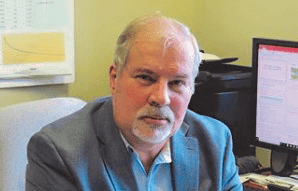EPIC Technology Project to Receive $1.5m for Near-Zero Water Consumption at Power Plants

UNC Charlotte’s Energy Production and Infrastructure Center (EPIC) has been selected to negotiate a $1.5 million award from the U.S. Department of Energy’s (DOE) Office of Fossil Energy (FE) and the National Energy Technology Laboratory (NETL). In addition to EPIC, project participants include Lehigh University (ERC and ATLSS) and Worley (formerly WorleyParsons). Baltimore AirCoil Company (BAC) and Gas Technology Institute (GTI) are industrial advisors.
The project will support DOE’s Crosscutting Research Program, which develops advanced technologies that can be applied to a range of fossil energy uses, and will help ensure that the Nation has a fleet of coal-fired power plants that provide stable power generation with operational flexibility, high efficiency, low emissions, and even lower water demand than now. It will also enhance the tolerance of fossil power generation when water availability is reduced due to droughts or competing needs from agriculture.
The project proposal entitled Improvement of Coal Power Plant Dry Cooling Technology through Application of Cold Thermal Energy Storage will develop, design, and evaluate a robust and cost-effective system for improving the performance of a mechanical draft dry cooling tower or an air-cooled condenser (ACC) for coal power plant applications, using a concept involving concrete with embedded, encapsulated phase-change materials. The system is based on “cold energy” storage, which involves storing low-temperature heat during the night and using it to pre-cool the air entering a dry cooling tower or ACC during the hot period of the day to improve cooling performance, reduce condenser back pressure, and increase power output with fewer emissions.
Dr. Michael Mazzola, executive director of EPIC, said in response to the intent to award “Dr. Sarunac, EPIC Research Professor of Mechanical Engineering, is a national expert in thermal energy storage and the operation of thermal power plants. His team has the exciting possibility to increase the operational flexibility of not only coal plants, but nuclear and gas plants as well. This could well solve one issue with the economical operation of thermal plants as the electrical grid evolves to a dynamic marketplace for energy.”